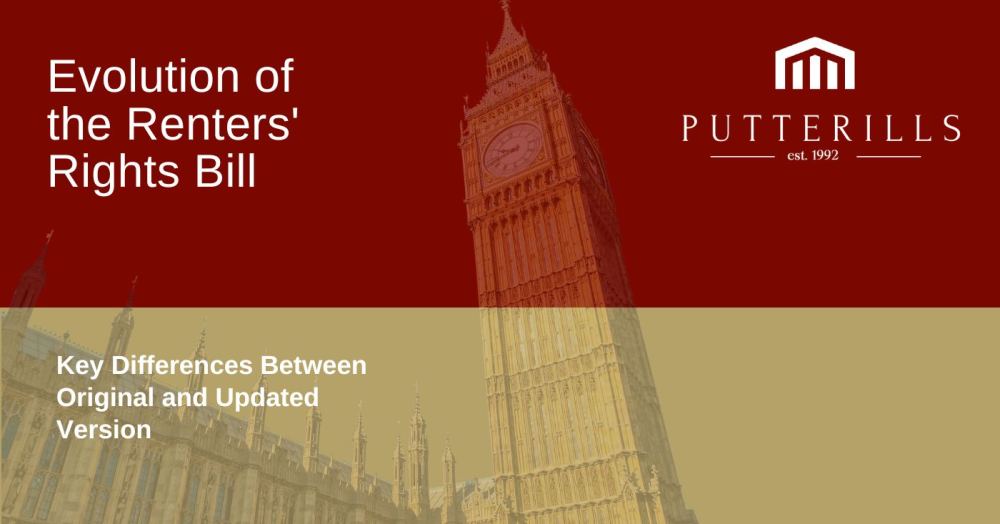
Evolution of the Renters' Rights Bill: What Landlords and Tenants Need to Know
The Renters' Rights Bill, initially introduced in September 2024, has significantly evolved through Parliament, reflecting careful consideration of both tenant protections and landlord concerns. Here's a concise breakdown of key changes and what they mean for you.
Background to the Renters' Rights Bill
Originally Labour's alternative to the Conservative's stalled Renters' Reform Bill, the Renters' Rights Bill retained approximately 78% of its predecessor’s framework but introduced several transformative measures:
- Immediate abolition of Section 21 evictions without waiting for court reforms.
- Establishment of a mandatory landlord ombudsman.
- Introduction of Awaab's Law alongside the Decent Homes Standard.
Recent parliamentary amendments have further refined the Bill. Below we explore five key legislative updates landlords and tenants must be aware of.
1. Rent Advance Limitations
Original: No additional rent advance restrictions beyond the Tenant Fees Act.
Updated: Landlords restricted to one month's rent in advance, applying retroactively to current tenancies.
Impact: Protects tenants from exploitative upfront payments, but potentially restricts housing access for renters with credit challenges.
2. Guarantor Liability Reforms
Original: Indefinite guarantor liability.
Updated:
- Family guarantors' liability ends upon the tenant's death.
- Non-family guarantors capped at six months' rent post-tenancy.
- Courts are empowered to adjust obligations based on hardship.
3. Student Housing Rules
Original: Standard periodic tenancy rules for student housing.
Updated:
- Eviction grounds (Ground 4A) restricted to contracts signed within six months of occupancy.
- Applies only to HMOs.
- Notice periods extended to four months for academic transitions.
Concern: Potential operational disruptions for student housing providers.
4. Enhanced Court Powers
Original: Tribunals limited to rent increases.
Updated: Courts can:
- Award tenant compensation for wrongful evictions.
- Impose civil penalties up to £40,000 for retaliatory evictions.
- Extend Rent Repayment Orders from 12 to 24 months.
Case Study: Tenants unlawfully evicted can reclaim two years’ rent plus compensation.
5. Ombudsman and Database Improvements
Original: Voluntary ombudsman participation.
Updated:
- Mandatory registration funded via per-property fees.
- Expanded database recording enforcement histories, eviction notices, and compliance ratings.
- Non-registration penalties up to £7,000, enforced via HMRC.
Emerging Positives for Landlords: Possible Exemptions and Incentives
While still under debate, several proposed amendments in the House of Lords indicate potential benefits for landlords:
1. Proposed Small Landlord Exemptions
- Section 21 Retention: Small landlords (fewer than 3–5 properties) could retain no-fault eviction rights.
- Fixed-Term Tenancy Retention: Allowing up to 12-month fixed terms, particularly beneficial for seasonal rentals like student housing.
2. Financial Incentives for Property Upgrades
- Tax deductions and grants: Landlords may receive Capital Gains Tax relief and grants (up to £10,000) for upgrading to the Decent Homes Standard.
- Rent Increase Flexibility: Proposed CPI-linked rent adjustments, protecting landlord incomes.
3. Operational and Legal Advantages
-Streamlined Evictions: Faster Section 8 procedures and reduced evidence requirements for anti-social behaviour.
- Reduced Liability: Limited guarantor liability and automatic release upon tenant death.
4. Market Stability Measures
- Tenant Screening Tools: Mandatory PRS database access for tenant verification.
- Pet Damage Mitigation: Insurance requirements shifting pet-related damage liability from landlords to tenants.
5. Pending Amendments from the House of Lords
- Court Capacity Review Clause: Potential delay of Section 21 abolition pending adequate court resource provision.
- HMO Student Housing Protections: Increased notice periods and certain exemptions from the Decent Homes Standard.
6. Dispute Resolution Improvements
- **Landlord Ombudsman Cost Savings:** Annual membership fees tax-deductible, potentially replacing expensive litigation.
- **RRO Safeguards:** Appeal provisions for landlords against fraudulent tenant claims.
What's Next?
As debates continue, especially concerning small landlord exemptions, pet policies, and rent controls, landlords have reason for cautious optimism about operational adjustments within the final Bill.
Key Dates for Implementation
- Royal Assent Expected:** April 2025
- Phase 1 (July 2025):** Section 21 abolition and periodic tenancy transitions.
- Phase 2 (October 2025):** Ombudsman scheme and database integration.
Note: Existing fixed-term tenancies automatically transition to periodic tenancies.